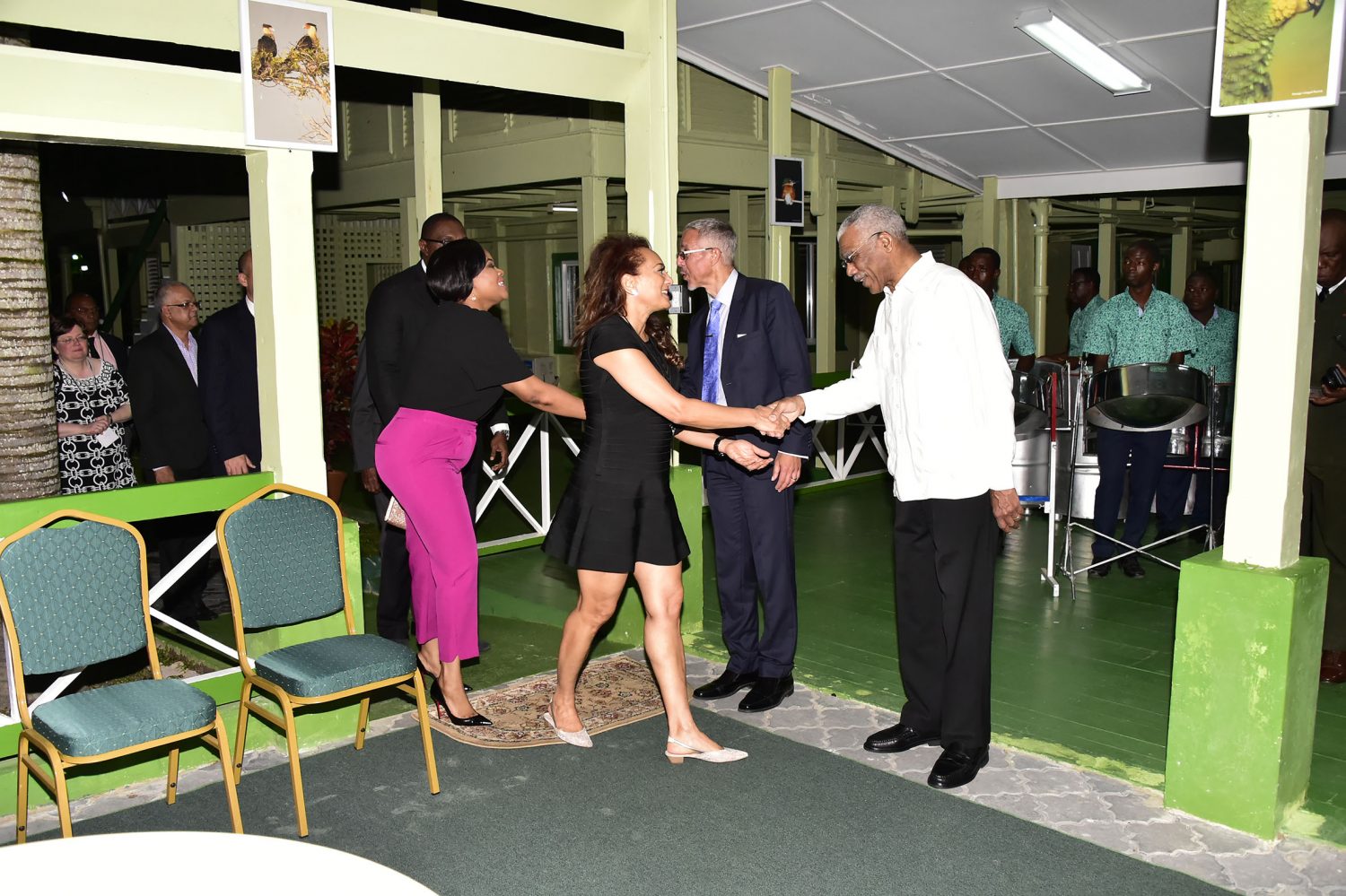President David Granger on Wednesday called for the protection of the Americas’ natural capital by the development of a concerted approach to the environment.
The president was at the time addressing the XXIV Inter-American Congress of Ministers and High-Level Authorities on Tourism at the Marriott Hotel, according to his speech released by the Ministry of the Presidency. The forum was coordinated by the Organisation of American States (OAS) and the Ministry of Business.
On the occasion of the celebration of the International Day of Forests, Granger reminded the delegates that tourism connects countries, markets, peoples and services of the hemisphere and can contribute to the economic development of the Americas and to the well-being of future generations by becoming more sustainable.
The Head of State urged the congress to seek solutions to ensure that the Americas, the ‘new world’ which is different from the ‘old’ worlds of Africa, Asia and Europe, can catalyze their tourism potential by increasing annual tourist arrivals. He challenged the attendees to protect, “… the Americas’ natural capital by developing a concerted approach to the environment; promoting increased connectivity between tourist destinations by encouraging the development of infrastructure; and providing smaller states, particularly the small-island states of the Caribbean, with easier access to capital for investments to build a more resilient industry.”
Granger noted that the small island states tended to lack the resources to finance their own air and shipping lines so that new routes can be exploited to boost tourist arrivals. He called for travel to be cheaper, easier and faster, and for destinations to be connected efficiently to make tourism more competitive with other parts of the world.
“The Americas can straddle the sea and integrate the continents, North and South through information and communications technology. This Congress should consider charting a roadmap to create a single ICT Space of the Americas,” Granger said.
“Sustainable tourism requires sustained action to ensure a more climate resilient tourism sector. Climate change is real, at least on this Continent. It is not an intellectual invention or political sophistry. Climate change represents the most potent threat to Caribbean tourism, particularly to small-island and low-lying coastal states,” the president stressed.
“Climate resilient tourism will help the hemisphere to recover from natural hazards. The increased frequency and ferocity of hurricanes in the Caribbean, as last year’s season of Hurricane Harvey and his sisters can attest, inflicted severe damage to infrastructure … which are vital to tourism. “The 21st century must become the ‘Century of the South.’ The North and East have had their day. It is now the South’s turn. A sustainable tourism sector can make this century an occasion for rediscovering the ‘New’ world,” the president stated.
Earlier, the president, whilst welcoming the delegates to the ‘green’ state, acknowledged Guyana’s forests which cover 75 percent of the country. He traced the history of the arrival of the early Europeans to the Caribbean 525 years ago, and the subsequent torrent of visitors flocking to the Americas to witness the cultural diversity, spectacular attractions and “ …un-spoilt islands, highlands, grasslands, wetlands, waterfalls, lakes, rivers and rainforests, which are the habitat of unmatched flora and wildlife.”
“The Americas must protect and preserve these priceless assets for the benefit of present and future generations,” Granger observed.
President Granger reminded the congress that the Americas is a hemisphere of relative peace in today’s turbulent world and the promotion of sustainable tourism initiatives and the marketing of the Americas as a ‘zone of peace,’ in a world with so many wars and conflicts should be subjects for consideration at this Congress. He called for the tourism industries to be protected from the perils of transnational threats such as cybercrime and trafficking in drugs, guns and people. He pointed out that security cooperation against transnational threats will make “our societies safer for our citizens and our visitors.”
Granger informed the meeting that Guyana likes to describe itself as ‘a continental country with Caribbean characteristics.’ As the only English-speaking country on the continent of South America, Guyana, he added, was the ‘gateway’ to the Continent for the goods, services and peoples of the South to markets and destinations in the Caribbean, Central America and North America.
The Head of State noted that Guyana’s commitment to hemispheric integration was manifested in its membership of regional and hemispheric organizations such as CARICOM, the Association of Caribbean States, the Common Market of the South and the OAS.





